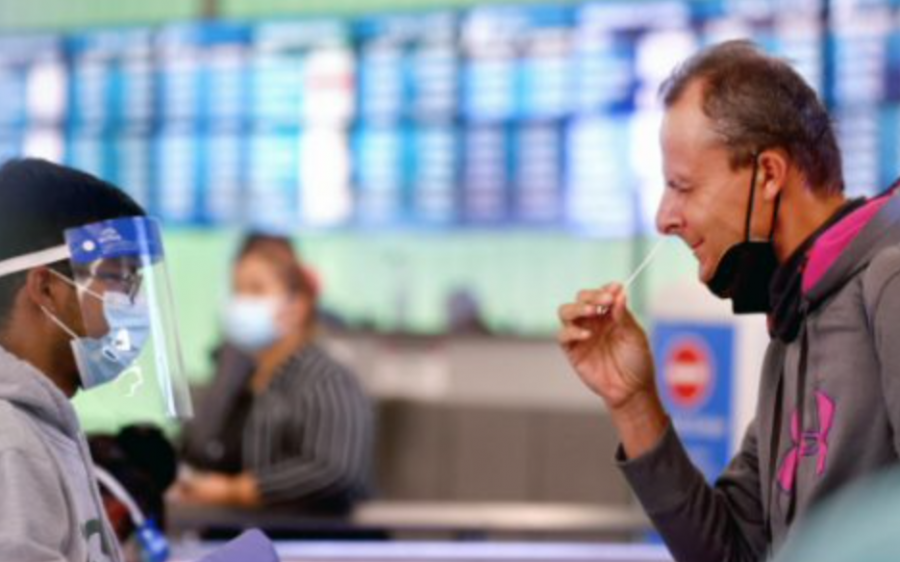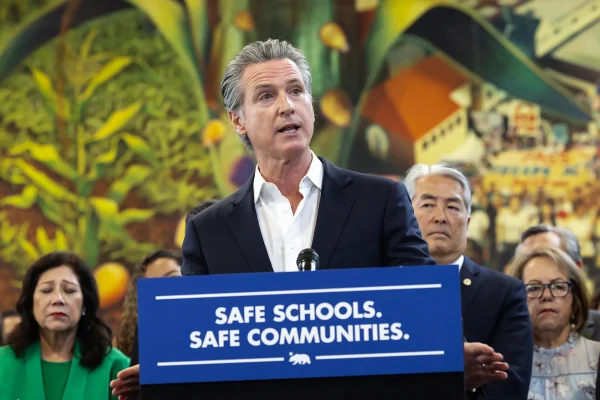What to do if you are exposed to COVID
Photo courtesy of Getty Images/Mario Tama. LAX Offers Free Rapid COVID-19 Tests To Incoming international Travelers.
You have just been informed that you were exposed to someone who tested positive for COVID-19. What do you do now? You’re frightened and unsure of the next steps. With so much disinformation and misinformation, it is stressful while being bombarded by videos, sound bites, anti-masker rhetoric, and vaccine hysteria.
According to the CDC website, what happens next depends on your vaccination status.
Anyone who has had close contact with someone with COVID-19 should quarantine for 14 days after their last exposure to that person, except if they meet the following conditions:
Someone who has been fully vaccinated and shows no symptoms of COVID-19 does not need to quarantine. However, fully vaccinated close contacts should:
- Wear a mask indoors in public for 14 days following exposure or until a negative test result.
- Get tested 5-7 days after close contact with someone with suspected or confirmed COVID-19.
- Get tested and isolate immediately if experiencing COVID-19 symptoms.
Someone who tested positive for COVID-19 with a viral test within the previous 90 days and has subsequently recovered and remains without COVID-19 symptoms does not need to quarantine. However, close contacts with prior COVID-19 infection in the previous 90 days should:
- Wear a mask indoors in public for 14 days after exposure.
- Monitor for COVID-19 symptoms and isolate immediately if symptoms develop.
- Consult with a healthcare professional for testing recommendations if new symptoms develop.
While it may feel like the worst is over, mutations keep emerging. Cases of the Delta Variant are on the rise. In contrast, 12 cases of the Omicron variant, Covid’s latest mutation, have been found in the U.S . Seven of those cases are here in California. While Omicron has not been detected in Riverside County, Los Angeles County has reported its first case. The Los Angeles case was detected in a traveler who had just returned from South Africa, where Omicron was first seen.
There have been at least ten to put the various mutations into perspective. The CDC classifies two variants as “variants of concern.” A variant of concern is one in which there is evidence of an increase in transmissibility, more severe disease (for example, increased hospitalizations or deaths), a significant reduction in neutralization by antibodies generated during previous infection or vaccination, reduced effectiveness of treatments or vaccines or diagnostic detection failures.
As of this writing, the Delta and Omicron variants have been classified as variants of concern. We have known about Delta for a few months now, but Omicron is the new bug in town. There is still so much unknown about Omicron. Unfortunately, the rapid antigen tests can only tell you if you are infected with the SARS-CoV-2 virus. These tests cannot differentiate between the mutations.
According to Dr. Gigi Gronvall, Senior Scholar and COVID-19 testing expert at the Johns Hopkins Center for Health Security, while these tests cannot tell you whether you are dealing with Omicron, they do give doctors clues. “It looks for three different parts of the virus, and one of those parts is not the same in Omicron as in Delta,” she said. “There will be one target that the test looks for that’s not going to be present in Omicron. It’s still going to be able to tell you that you’re positive for SARS-CoV-2, though.” The problem is that the spike protein in Omicron has muted so much as to not be recognized by the tests. So, while two parts of the test will show as positive, the spike protein element will show negative. This red flag alerts doctors to send these samples off for further testing. One of the frustrating aspects about Covid is that infected people may never know what variant they are infected with. Dr. Gronvall stressed that the variant is not important information. You have Covid. “It does not matter if you have Omicron or Delta,” she said. “If there is a therapy that ends up working for one version versus another, then that’s something we can talk about, but at this point, it’s information that is not really that important for the individual.”
What is important is getting tested. Whether you have been vaccinated or not, if you have been exposed to a person who is positive, get tested as soon as possible, quarantine if that is recommended. We still need to get this under control. The only way to do that is to stop the spread.

Kevin is a film major at COD. He came back to school to study filmmaking after getting a degree in paralegal studies. He is excited to become writing the...






